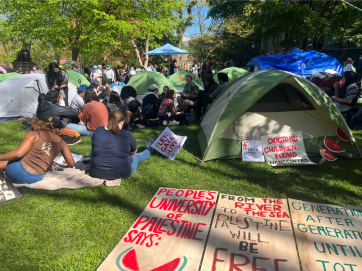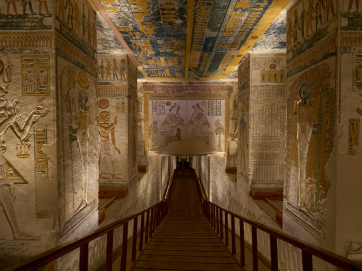I was 25, seven years out of high school, with a young wife and a three-year-old daughter. A laborer at my father's oilfield trucking company in Casper, Wyoming, I helped the yard foreman to unload, rack, and tally oilwell pipe from incoming trucks and railcars or to load pipe onto our trucks for on-demand field delivery. It was hard, dirty, dangerous work, in all seasons, all weather, day or night.
As a young family, we were getting by. But I was not realizing any potential I might have had. My life was to be about words, languages, books, stories, learning and teaching, but gritty Casper gave me no encouragement. My decent public high school had given me outlines and shadows of the mighty, beautiful, and terrible works of mankind, but I had yet to really know them, and all opportunities to learn them were swiftly closing. My ignorance was painful.
My brilliant best friend was then studying Classics at Reed College in Portland, and whenever he returned to Casper on breaks, he would show me what he had been learning. It seized my mind. I bought elementary Greek and Latin textbooks, and in the pipe yard or truck shop I would quietly recite to myself the Latin demonstratives and Greek articles, but I needed a real education. To me, that meant Classics.
On luck and some small scholarships and student loans, we moved to Laramie, where I entered the University of Wyoming in 1975. My Latin professor was a kind man and a competent teacher but disappointing: the fire of interest had long before cooled within his heart. I despaired of my decision until the first meeting of Linguistics 101 that same fall.
Professor Anne Martha Saxon Slater, an anthropological linguist, was an animated, fast-talking chain-smoker with twin grey braids down to her waist. She burst into the room, assuming we had all read the first chapter of the assigned textbook, and blasted questions at us while lighting her next cigarette. Her knowledge, her energy, electrified me.
Halfway through the course, she let it be known that her doctoral dissertation had been on the Old Norse sagas and that she was expert in Old English—languages I had been fascinated with since I read The Hobbit and The Lord of the Rings trilogy in high school. Her teachers were among the Greats: W. F. Bolton and Arthur Brodeur. After class one day, I approached her: would she teach me these wonderful and rare languages? Yes, she said.
For two and a half years, we met in the former office of Professor William Mulloy, the famed anthropologist of Northern Plains Indians and of Rapa Nui, who died the spring before I arrived in Laramie, having allowed Anne to use this wondrous place before he passed away.
Mulloy had a custom-built desk, gently sloping on two sides, one for him, one for his graduate students. Like monastic scholars, Anne sat on one side, I on the other, our books open on the slanted surfaces. A mullioned and muntin-gridded, eight-foot-tall west-facing window cast afternoon sunlight down on us as the blue gauze of her cigarette smoke wafted upward, incense in that clerestory light.
We met there twice a week. I would recite lines of Beowulf or paragraphs from a saga, and she would correct my pronunciation. Then I translated, and she critiqued that, drilling me on forms, grilling me on comprehension, and not especially gentle in her corrections. She taught me how to prepare and read as a serious student, not imposing my vain and lazy interpretation on a text but mastering the granular details of a language to make the vast sweep of an epic story exactly, intimately, understandable.
We remained friends decades after I left Wyoming. Years after her untimely death in 2006, and by then long a teacher myself, I tried to put my everlasting gratitude to her in an epigram.
Such light as this should ever fall.
Let it spill down through the window,
over benches, over books,
like human words written on a page.
This is what blood is for, this smoke,
these words, these books, this glass,
such light as this that made these only ours.
Photo by Friedrich Wilhelm Heine - Wägner, Wilhelm (1886). Asgard and the gods. London: Swan Sonnenschein, Le Bas & Lowrey. Page 27., Public Domain













